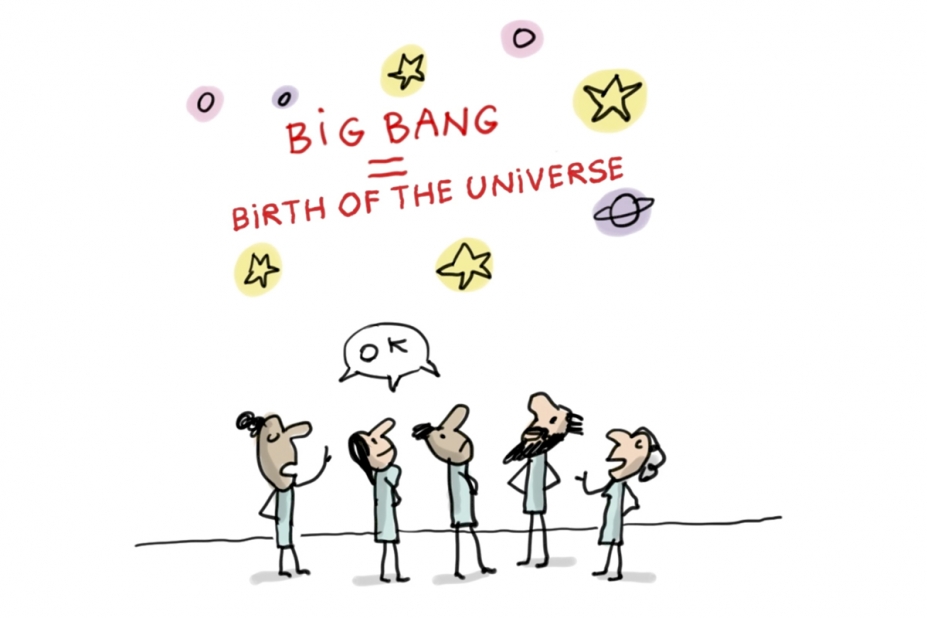The Big Bang is the theory about the birth of the universe that all scientists agree on.
This event supposedly happened about 13.8 billion years ago.
But how do we know that? And what caused it?
In the early 20th-century, most scientists thought the universe was fixed and that it always had been.
And then, astronomers noticed galaxies, vast groups of stars, moving away from each other.
In the 1920s, the American Hubble and the Belgian Lemaître put forward the theory of an expanding universe.
According to this theory, Space was like a balloon getting bigger. So it must have started somewhere.
To make fun of this idea, the British physicist Fred Hoyle called it the “Big Bang”.
However, since then, scientific observations have confirmed the theory and the name stuck.
In fact, the further you look into space, the further you look back in time. And what we see fits the Big Bang theory.
We don’t know what was before the Big Bang and even if there was a “before”.
What we do know, is that the universe was made up of infinitely hot and dense gas, which started spreading and cooling.
Much later, this allowed stars to appear, then planets… like the Earth.





 Retour
Retour